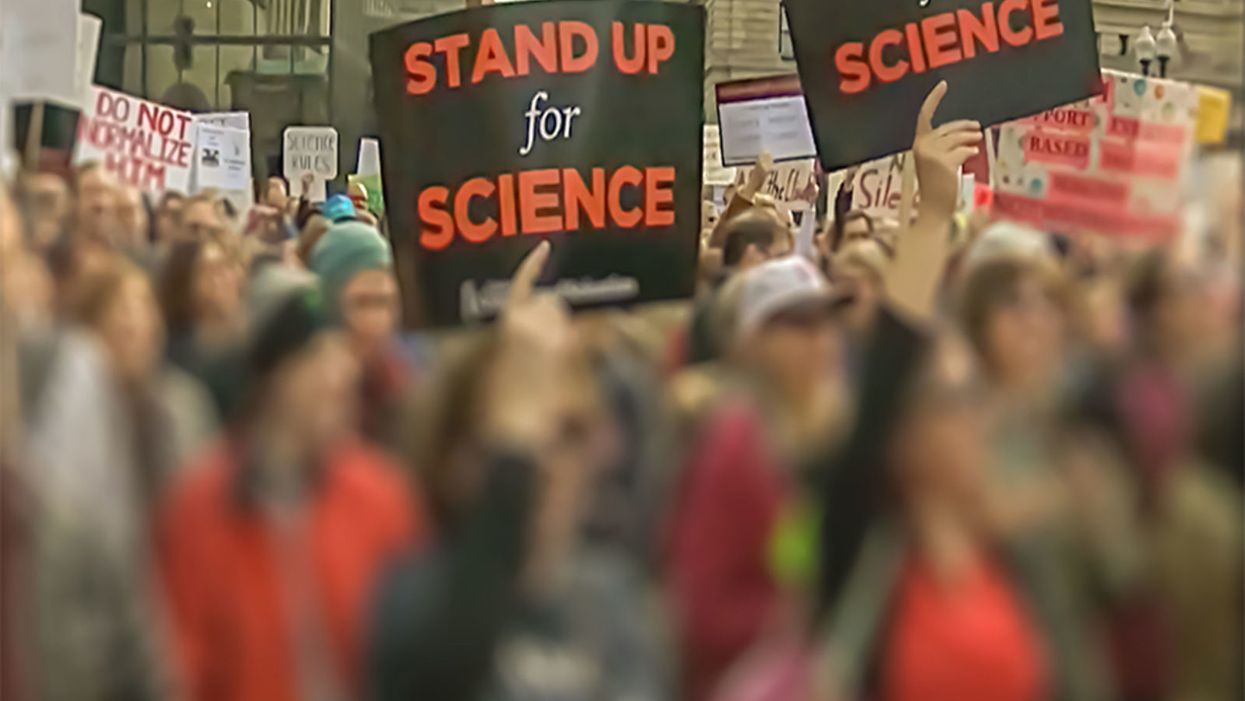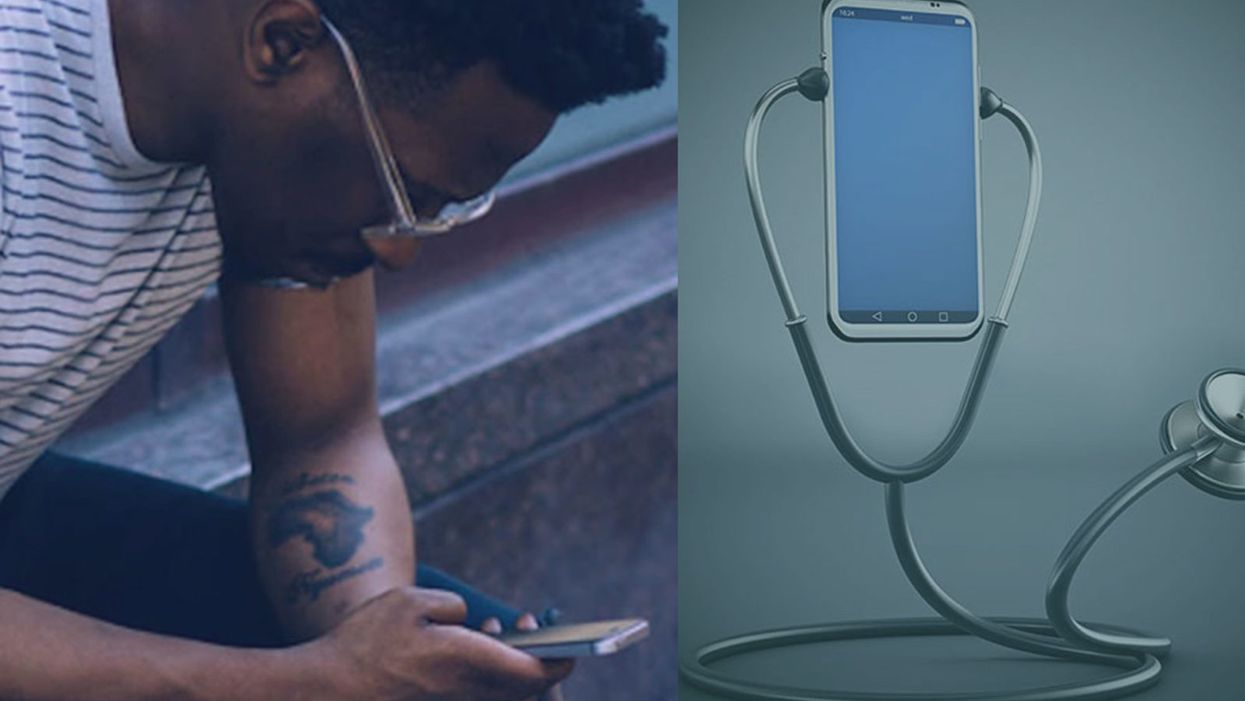Dec. 17th Event: The Latest on Omicron, Boosters, and Immunity
Kira Peikoff was the editor-in-chief of Leaps.org from 2017 to 2021. As a journalist, her work has appeared in The New York Times, Newsweek, Nautilus, Popular Mechanics, The New York Academy of Sciences, and other outlets. She is also the author of four suspense novels that explore controversial issues arising from scientific innovation: Living Proof, No Time to Die, Die Again Tomorrow, and Mother Knows Best. Peikoff holds a B.A. in Journalism from New York University and an M.S. in Bioethics from Columbia University. She lives in New Jersey with her husband and two young sons. Follow her on Twitter @KiraPeikoff.
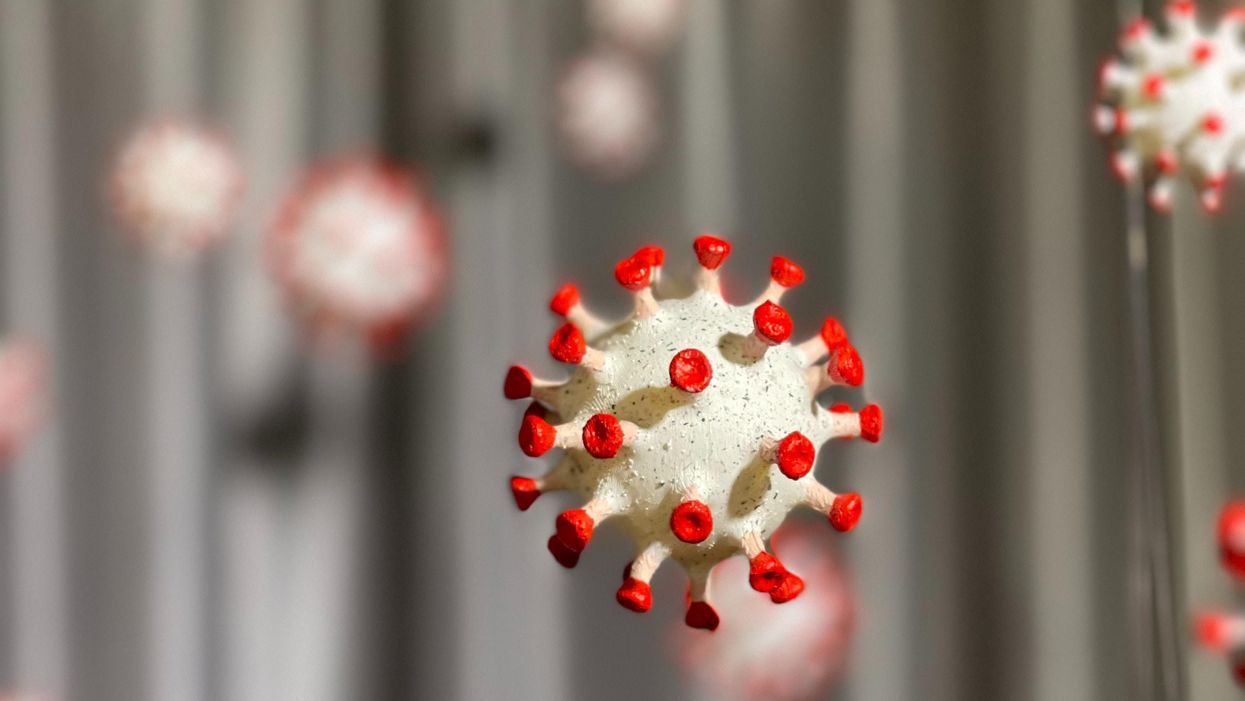
The Omicron variant poses new uncertainty for the vaccines, which four leading experts will address during our virtual event on December 17th, 2021.
This virtual event will convene leading scientific and medical experts to discuss the most pressing questions around the new Omicron variant, including what we know so far about its ability to evade COVID-19 vaccines, the role of boosters in eliciting heightened immunity, and the science behind variants and vaccines. A public Q&A will follow the expert discussion.
EVENT INFORMATION:
Date: Friday Dec 17, 2021
2:00pm - 3:30pm EST
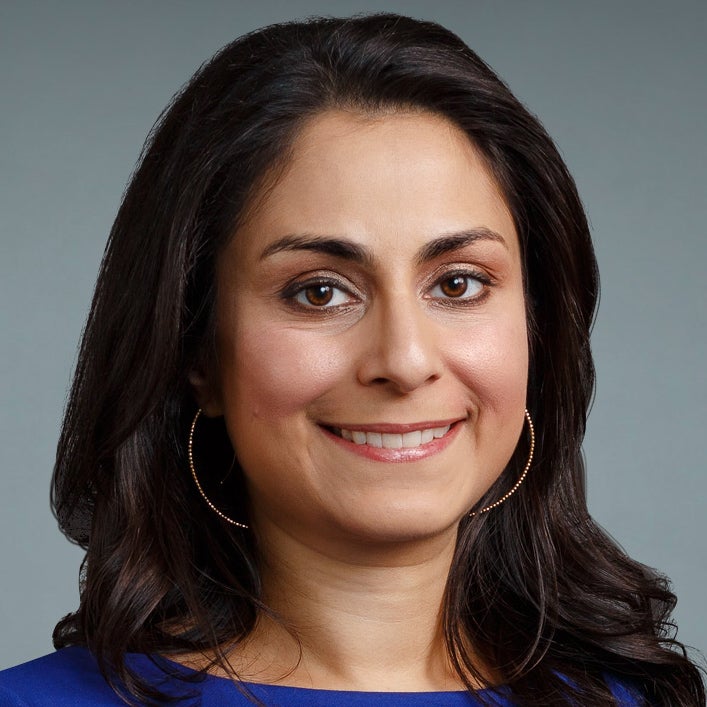
Dr. Céline Gounder, MD, ScM, is the CEO/President/Founder of Just Human Productions, a non-profit multimedia organization. She is also the host and producer of American Diagnosis, a podcast on health and social justice, and Epidemic, a podcast about infectious disease epidemics and pandemics. She served on the Biden-Harris Transition COVID-19 Advisory Board.
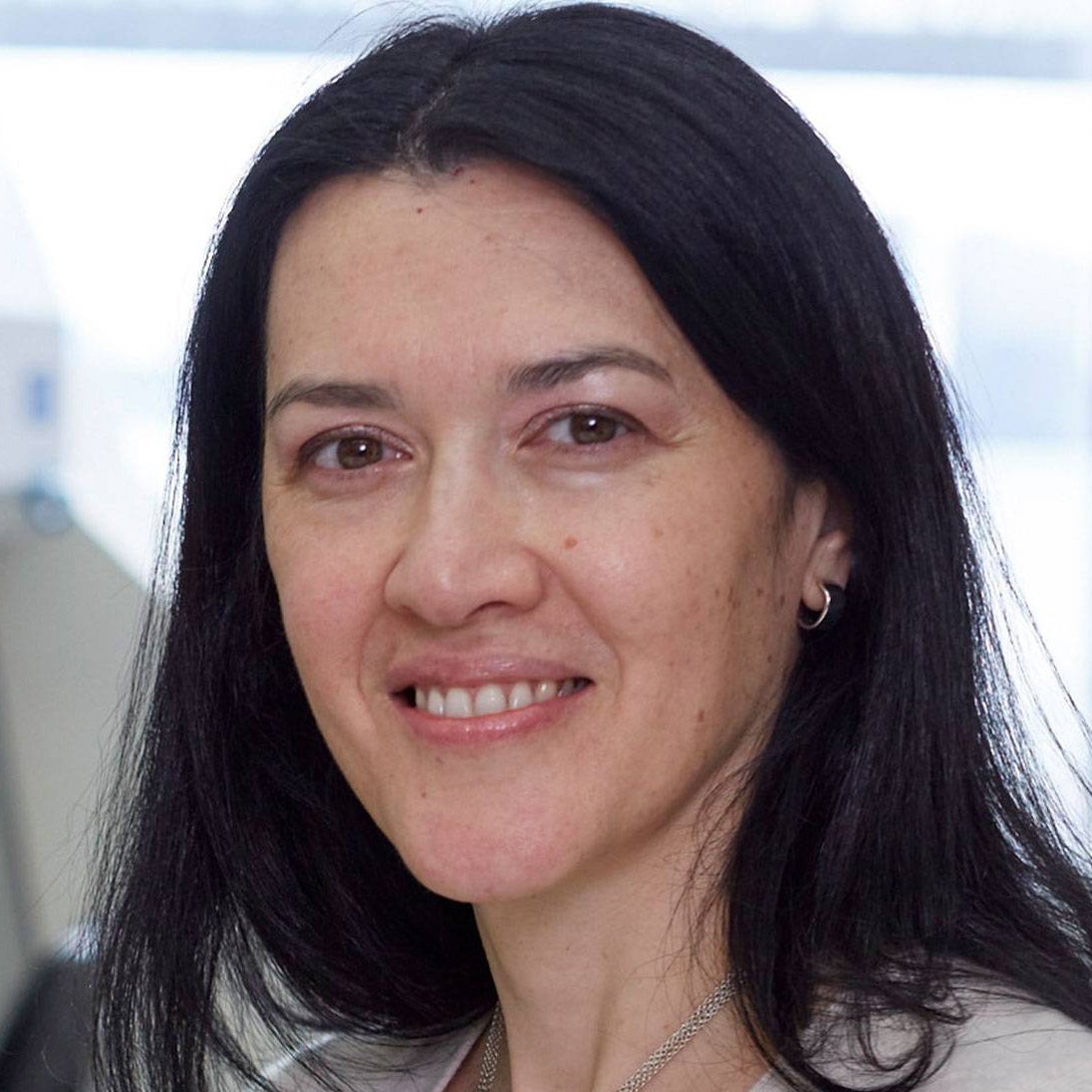 Dr. Theodora Hatziioannou, Ph.D., is a Research Associate Professor in the Laboratory of Retrovirology at The Rockefeller University. Her research includes identifying plasma samples from recovered COVID-19 patients that contain antibodies capable of neutralizing the SARS-CoV-2 coronavirus.
Dr. Theodora Hatziioannou, Ph.D., is a Research Associate Professor in the Laboratory of Retrovirology at The Rockefeller University. Her research includes identifying plasma samples from recovered COVID-19 patients that contain antibodies capable of neutralizing the SARS-CoV-2 coronavirus.
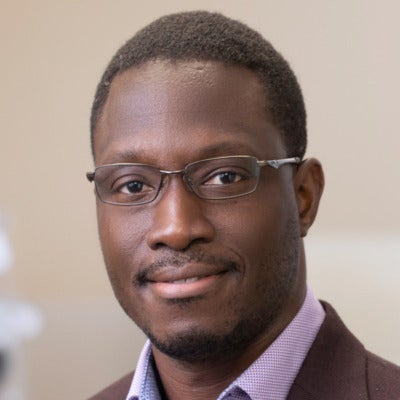
Dr. Onyema Ogbuagu, MBBCh, is an Associate Professor at Yale School of Medicine and an infectious disease specialist who treats COVID-19 patients and leads Yale’s clinical studies around COVID-19. He ran Yale’s trial of the Pfizer/BioNTech vaccine.
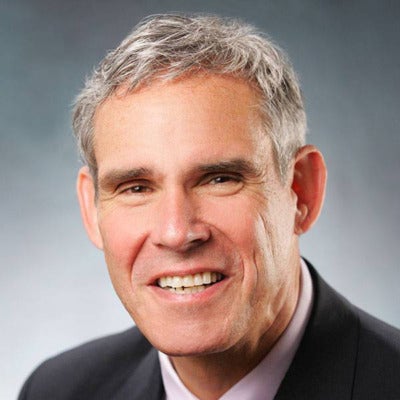
Dr. Eric Topol, M.D., is a cardiologist, scientist, professor of molecular medicine, and the director and founder of Scripps Research Translational Institute. He has led clinical trials in over 40 countries with over 200,000 patients and pioneered the development of many routinely used medications.
This event is the fourth of a four-part series co-hosted by Leaps.org, the Aspen Institute Science & Society Program, and the Sabin–Aspen Vaccine Science & Policy Group, with generous support from the Gordon and Betty Moore Foundation and the Howard Hughes Medical Institute.

Kira Peikoff was the editor-in-chief of Leaps.org from 2017 to 2021. As a journalist, her work has appeared in The New York Times, Newsweek, Nautilus, Popular Mechanics, The New York Academy of Sciences, and other outlets. She is also the author of four suspense novels that explore controversial issues arising from scientific innovation: Living Proof, No Time to Die, Die Again Tomorrow, and Mother Knows Best. Peikoff holds a B.A. in Journalism from New York University and an M.S. in Bioethics from Columbia University. She lives in New Jersey with her husband and two young sons. Follow her on Twitter @KiraPeikoff.
A group of protesters march for science.
You read an online article about climate change, then start scanning the comments on Facebook. Right on cue, Seth the Science Denier chimes in with:
The study found that science deniers whose arguments go unchallenged can harm other people's attitudes toward science.
"Humans didn't cause this. Climate is always changing. The earth has always had cycles of warming and cooling—what's happening now isn't new. The idea that humans are causing something that happened long before humans were even around is absurd."
You know he's wrong. You recognize the fallacy in his argument. Do you take the time to engage with him, or write him off and move along?
New research suggests that countering science deniers like Seth is important—not necessarily to change their minds, but to keep them from influencing others.
Looking at Seth's argument, someone without much of a science background might think it makes sense. After all, climate is always changing. The earth has always gone through cycles, even before humans. Without a scientifically sound response, a reader may begin to doubt that human-caused climate change is really a thing.
A study published in Nature found that science deniers whose arguments go unchallenged can harm other people's attitudes toward science. Many people read discussions without actively engaging themselves, and some may not recognize erroneous information when they see it. Without someone to point out how a denier's statements are false or misleading, people are more likely to be influenced by the denier's arguments.
Researchers tested two strategies for countering science denial—by topic (presenting the facts) and by technique (addressing the illogical argument). Rebutting a science denier with facts and pointing out the fallacies in their arguments both had a positive effect on audience attitudes toward legitimate science. A combination of topic and technique rebuttals also had a positive effect.
"In the light of these findings we recommend that advocates for science train in topic and technique rebuttal," the authors wrote. "Both strategies were equally effective in mitigating the influence of science deniers in public debates. Advocates can choose which strategy they prefer, depending on their levels of expertise and confidence."
Who you're really addressing are the lurkers who might be swayed by misinformation if it isn't countered by real science.
So what does that look like? If we were to counter Seth's statements with a topic rebuttal, focusing on facts, it might look something like this:
Yes, climate has always changed due to varying CO2 levels in the atmosphere. Scientists have tracked that data. But they also have data showing that human activity, such as burning fossil fuels, has dramatically increased CO2 levels. Climate change is now happening at a rate that isn't natural and is dangerous for life as we know it.
A technique rebuttal might focus on how Seth is using selective information and leaving out important facts:
Climate has always changed, that's true. But you've omitted important information about why it changes and what's different about the changes we're seeing now.
Ultimately, we could combine the two techniques in something like this:
Climate has always changed, but you've omitted important information about why it changes and what's different about what we're seeing now. Levels of CO2 in the atmosphere are largely what drives natural climate change, but human activity has increased CO2 beyond natural levels. That's making climate change happen faster than it should, with devastating effects for life on Earth.
Remember that the point is not to convince Seth, though it's great if that happens. Who you're really addressing are the lurkers who might be swayed by misinformation if it isn't countered by truth.
It's a wacky world out there, science lovers. Keep on fighting the good fight.
Diagnosed by App: Medical Testing in the Palm of Your Hand
The shift to in-home medical testing through smartphone apps is expected to save patients time in receiving certain kinds of diagnoses, but raises some privacy concerns.
Urinary tract infections aren't life-threatening, but they can be excruciatingly painful and debilitating.
"Overnight, I'd be gripped by this searing pain and I can barely walk," says Ling Koh, a Los Angeles-based bioengineer. But short of going to the ER or urgent care, she'd have to suffer for a few days until she could get in to see her family doctor for an antibiotic prescription.
Smartphones are now able to do on-the-spot diagnostic tests that were previously only able to be performed in a lab.
No longer. Koh, who works for Scanwell Health, was instrumental in the development of the company's smartphone app that is FDA-cleared for urinary tract infection screening. It allows someone to test urine at home using a paper test strip — the same one used by doctors in ERs and labs. The phone app reads a scan card from the test kit that can analyze what's on the strip and then connect the patient to a physician who can make a virtual diagnosis.
Test strips cost $15 for a three-pack and consultation with a doc is about the same as an average co-pay -- $25, and the app matches the quality of clinical laboratory tests, according to the company. Right now, you can get a referral to a telehealth visit with a doctor in California and get a prescription. A national rollout is in the works within the next couple of months.
"It's so easy to use them at home and eliminate the inefficiencies in the process," says Koh. "A telemedicine doctor can look at the test results and prescribe directly to the pharmacy instead of women waiting at home, miserable, and crying in the bathtub."
Scanwell is now involved in an ongoing National Institutes of Health- sponsored study of chronic kidney disease to test a version of the app to identify patients who have the disease, which affects more than 30 million Americans. "Because kidney disease has virtually no symptoms, by the time people realize they're sick, their illness is advanced and they're ready for dialysis," says Koh. "If we can catch it sooner, early intervention can help them avoid kidney failure."
Smartphones have changed society — and now they may change medical care, too. Thanks to the incredible processing capabilities of our smartphones, which come equipped with a camera, access to the internet and are thousands of times faster than the 1960s era NASA computers that ran the Apollo Moon Mission, these pocket-sized powerhouses have become an invaluable tool for managing our health and are even able to do on-the-spot diagnostic tests that were previously only able to be performed in a lab.
This shift to in-home testing is the wave of the future, promising to ease some of the medical care bottlenecks in which patients can have two- to three-week waits to see their family doctors and lift some of the burdens on overworked physicians.
"This is really the democratization of medicine because a lot of the things we used to rely on doctors, hospitals, or labs to do we'll be able to do ourselves," says Dr. Eric Topol, an eminent cardiologist and digital health pioneer at the Scripps Clinic and Research Institute in La Jolla.
But troubling questions remain. Aside from the obvious convenience, are these tests truly as accurate as ones in a doctor's office? And with all this medical information stored and collected by smartphones, will privacy be sacrificed? Will friends, family members, and employers suddenly have access to personal medical information we'd rather keep to ourselves?
The range of what these DIY health care apps can do is mind-boggling, and even more complex tests are on the way.
"I'm really worried about that because we've let our guard down," says Topol. "Data stored on servers is a target for cyber thieves — and data is being breached, hacked, brokered, and sold, and we're complacent."
Still, the apps have come a long way since 2011 when Topol whipped out an experimental smartphone electro-cardiogram that he had been testing on his patients when a fellow passenger on a flight from Washington D.C. was seized with severe chest pains. At 35,000 feet in the air, the app, which uses fingertip sensors to detect heart rate, showed the man was having a heart attack. After an emergency landing, the passenger was rushed to the closest hospital and survived. These days, even the Apple Watch has an FDA-approved app that can monitor your electro-cardiogram readings.
The range of what these DIY health care apps can do is mind-boggling, and even more complex tests are on the way. Phone apps can now monitor sleep quality to detect sleep apnea, blood pressure, weight and temperature. In the future, rapid diagnostic tests for infectious diseases, like flu, Dengue or Zika, and urinalysis will become common.
"There is virtually no limit to the kinds of testing that can be done using a smartphone," says Dr. John Halamka, Executive Director of the Health Technology Exploration Center at Beth Israel Lahey Health. "No one wants to drive to a clinician's office or lab if that same quality testing can be achieved at a lower cost without leaving home."
SkinVision's skin cancer screening tool, for instance, can tell if a suspicious mole is cancerous. Users take three photos, which are then run through the app's algorithm that compares their lesions with more than three million pictures, evaluating such elements as asymmetry, color, and shape, and spits out an assessment within thirty seconds. A team of in-house experts provide a review regardless of whether the mole is high or low risk, and the app encourages users to see their doctors. The Dutch-based company's app has been used by more than a million people globally in the EU, and in New Zealand and Australia, where skin cancer is rampant and early detection can save lives. The company has plans to enter the U.S. market, according to a spokesperson.
Apps like Instant Heart Rate analyze blood flow, which can indicate whether your heart is functioning normally, while uChek examines urine samples for up to 10 markers for conditions like diabetes and urinary tract infections. Some behavioral apps even have sensors that can spot suicide risks if users are less active, indicating they may be suffering from a bout of the blues.
Even more complex tests are in the research pipeline. Apps like ResAppDX could eventually replace x-rays, CT scans, and blood tests in diagnosing severe respiratory infections in kids, while an EU-funded project called i-Prognosis can track a variety of clues — voice changes, facial expressions, hand steadiness — that indicate the onset of Parkinson's disease.
These hand-held testing devices can be especially helpful in developing countries, and there are pilot programs to use smartphone technology to diagnose malaria and HIV infections in remote outposts in Africa.
"In a lot of these places, there's no infrastructure but everyone has a smartphone," says Scanwell's Koh. "We need to leverage the smartphone in a clinically relevant way."
However, patient privacy is an ongoing concern. A 2019 review in the Journal of the American Medical Association conducted by Australian and American researchers looked at three dozen behavioral health apps, mainly for depression and smoking cessation. They found that about 70 percent shared data with third parties, like Facebook and Google, but only one third of them disclosed this in a privacy policy.
"Patients just blindly accept the end user agreements without understanding the implications."
Users need to be vigilant, too. "Patients just blindly accept the end user agreements without understanding the implications," says Hamalka, who is also the Chief Information Officer and Dean for Technology at Harvard Medical School.
And quality control is an issue. Right now, the diagnostic tools currently available have been vetted by the FDA, and overseas companies like Skin Vision have been scrutinized by the U.K.'s National Health Service and the EU. But the danger is that a lot of apps are going to be popping up soon that haven't been properly tested, due to loopholes in the regulations.
"All we want," says Topol, "are rigorous studies to make sure what consumers are using is validated."
[Correction, August 19th, 2019: An earlier version of this story misstated the specifics of SkinVision's service. A team of in-house experts reviews users' submissions, not in-house dermatologists, and the service is not free.]
